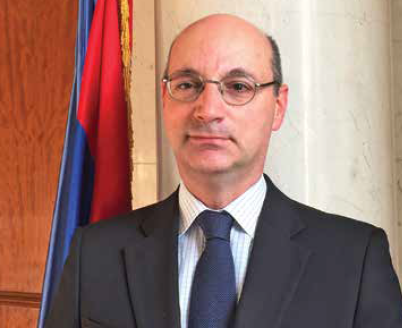In the past two years, Diplomacy&Commerce magazine has given to its readers abundance of news from politics, business and culture, has reported on the opinions of relevant stakeholders both from Serbia and abroad, covering all segments of life, and opened up topics that were not written or talked about enough. With its latest issue, Diplomacy&Commerce is celebrating its second anniversary in Serbia. We are very proud of the fact that, in two years and 24 issues, we have managed to interview the leaders of the Serbian political, business and diplomatic community, as well as the renowned regional and the global public figures. In these past 24 issues, we have also published special supplements dedicated to overall relations between Serbia and European and world countries.

We have asked Serbian officials – Serbian PM, government ministers, ambassadors and representatives of business associations in Serbia – to give us their opinions about the most important changes that Serbia should make in order to become an EU member, and about the investment climate in the West Balkan region.
1. What do you think are essentially the most important changes that Serbia should make in order to be ready for EU membership by 2025?
-
Do Serbia and the Western Balkans have enough capacity to attract large multi-nation companies to their markets?
1. 2025 is not a fix date for accession but a realistic horizon if Serbia realizes all necessary reforms. These reforms are set out in the 35 negotiation chapters: they will need to be completed before 2025 which means all of them are equally important, even though some are more complex than others. Serbia has already reached very positive results in economic reforms, regarding its macroeconomic situation or fiscal and budget consolidation. But difficult reforms are still ahead. For example, the chapters on rule of law will imply reforms guaranteeing the independence of the judiciary and media freedom, while crime and corruption will have to be fought efficiently. Serbia will need to normalize its relations with Pristina through a legally binding agreement that will reflect an acceptable compromise. France is aware that these reforms are numerous and difficult, and stands ready to provide to Serbia with any support which would be useful.
2. Serbia has a real economic potential. Its workforce is well educated, competent and hardworking. Its geographic situation is an asset for trade in Southeast Europe. Even though work remains to be done in infrastructures, Serbia has already invested a lot to upgrade them. These features are positive to attract major companies and several French ones have already made such investments: Suez for the Vinča dump, Vinci for the Nikola Tesla airport, Michelin for the tire factory of Pirot etc. Opportunities exist and, by implementing the reforms set out in the EU accession plan, Serbia will be able to turn them into concrete realizations.